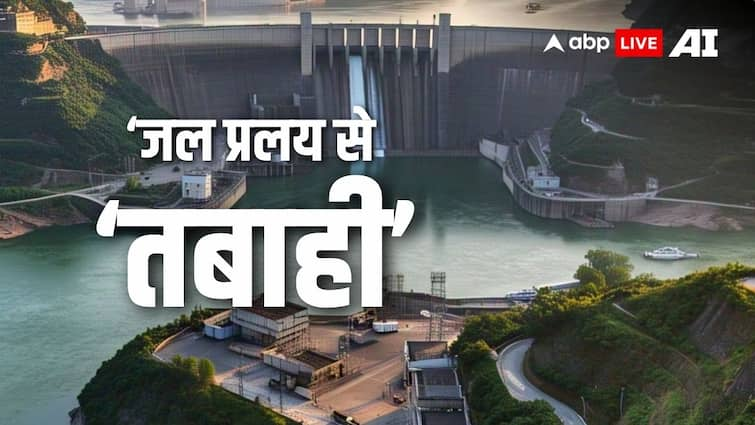China Dam is Water bomb against India BJP MP Tapir gao on World’s largest dam
China water bomb effect on india: Tapir Gao, a Bharatiya Janata Party (BJP) Lok Sabha member from Arunachal Pradesh, expressed concern over China’s announcement to build the world’s largest dam on Tuesday (April 8). He claimed that the dam would be similar to the ‘Water Bomb’, which can bring water catastrophe in lower areas like Northeast India and Bangladesh.
The Gao made this comment at the conference on the subject of Brahmaputra ‘case of water security, ecological integrity and disaster in the sub-Himalayan region in Guwahati: Brahmaputra’s Conference. He said, “China has already decided to build a dam, which will be able to produce 60,000 MW of electricity. It will not be a dam, but a ‘water bomb’, which will be used against India and other lower coastal countries.”
Arun Gao said that the countries of East Asia including India will be destroyed
Gao claimed that the devastating floods in June 2000 were also the result of similar ‘water bombs’, in which more than 10 bridges on the Siang River were washed away. In Arunachal Pradesh, Yarlung Tsangpo is known as the Siang River, which is known as Brahmaputra after entering Assam. BJP MP from Arunachal East Lok Sabha constituency Gao said, “If China decides to release water from the dam in future, Arunachal Pradesh, Assam, Bangladesh and other countries of Southeast Asia will be destroyed.”
Gao told what to do to avoid this water bomb
He said that he supports the proposal to construct another dam on the Siang River in Arunachal, so that the disaster in the low -lying areas can be prevented in the case of sudden release of water from the proposed dam. Gao said that concerns about the project are justified, as the water flow from Tibet may be disrupted due to the dam, which may pose a sudden flood or low water level in low -lying areas. He said, “This will have a direct impact on farming and water supply in India, especially Arunachal Pradesh and Assam as well as Bangladesh and will increase dependence on China for this important resources (water).” According to Gao, the Government of India is trying to talk to China on the issue diplomatically, so that the matter can be resolved.
China has approved the biggest dam
China had approved the construction of the world’s largest dam on an estimated cost of US $ 137 billion on the Yarlung Tsangpo River in Tibet on 25 December last year. The dam is to be constructed at the place where the Yarlung Tsangpo River turns towards the Medog County of China and then enters Arunachal Pradesh.
Thailand’s Swedish journalist also gave warning
Swedish journalist and writer Burtel Linter, who lives in Thailand, highlighted at the conference that the Chinese invasion in the Tibetan region in the late 1950s was especially targeted on numerous rivers that originated from the Tibetan plateau. Linters have a deep understanding of the politics and history of Asia. He said, “China alone has built 11 big dams on the Mcong River, which is a lifeline for five other countries.”
‘India should make a big agreement with China’
Linter emphasized that India should signed a water distribution agreement with China. He feared that in the absence of agreement, there could be “bilateral conflict” between the two neighboring countries. Writer-journalist Claud Arpi, who addressed the conference through a video conference, said that China not only wants to become a superpower by building a dam in its medog county, but also plans to turn the water of the Yarlung Tsangpo River towards the yellow river through many of its tunnels.
Chairman of Brahmaputra Board said- It is necessary to find a solution
Dr. Ranbir Singh, Chairman of Brahmaputra Board, underlined that the Brahmaputra Valley is the only water-additional river valley in India, while the rest of the valleys are lacking water. He said, “With the construction of this dam in China, will there be a shortage of water in the Brahmaputra River Valley in the future or other disastrous results, which are very important to find a solution through proper scientific studies.”
IIT professors also in tension, said we do not have assessment equipment
Professor Anamika Barua of Indian Institute of Technology (IIT) Guwahati said that there is a lack of information and lack of transparency from China. He claimed that the neighboring country “is not sharing information.” Barua also said, “We do not even have enough scientific data or equipment to measure the real impact on the low -lying areas from the world’s largest dam.” The conference was organized by Thinktank ‘Asian Confluence’. Experts from Vietnam, Nepal and Bhutan also participated in it.
Share this content:













Post Comment